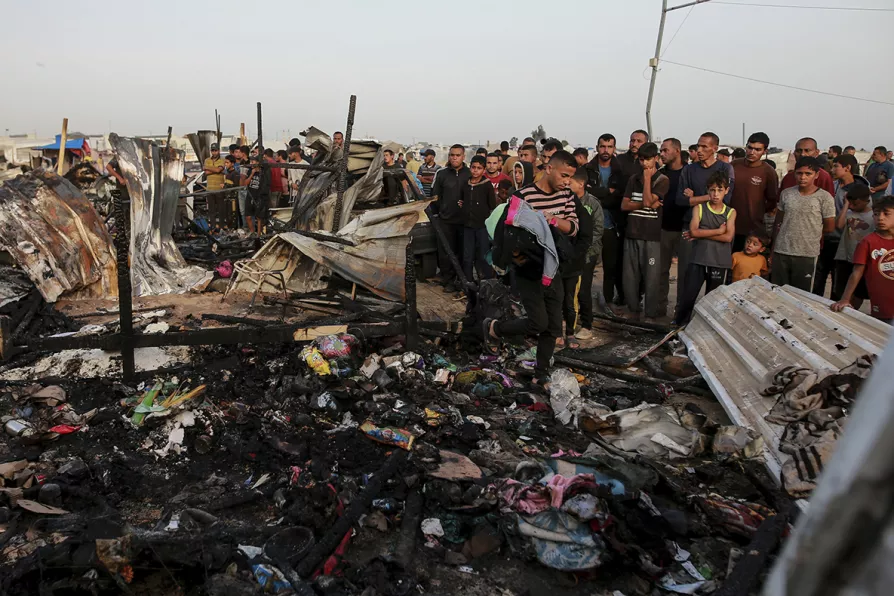This weekend, the NEU holds a special conference to debate changing its approach to organising teaching assistants, which a 2017 TUC agreement forbids. General secretary DANIEL KEBEDE outlines the choices before delegates

 Palestinians look at the destruction after an Israeli strike where displaced people were staying in Rafah, Gaza Strip, Monday, May 27, 2024
Palestinians look at the destruction after an Israeli strike where displaced people were staying in Rafah, Gaza Strip, Monday, May 27, 2024
IF ONE were to argue that a top Spanish government official would some day declare that “from the river to the sea, Palestine would be free,” the suggestion itself would have seemed ludicrous.
But this is precisely how Yolanda Diaz, Spain’s deputy prime minister, concluded a statement on May 23, a few days before Spain officially recognised Palestine as a state.
The Spanish recognition of Palestine, along with the Norwegian and Irish recognition, is most important.

Spain has joined South Africa’s ICJ genocide case against Israel while imposing weapons bans and port restrictions, moves partly driven by trade unions — proving just how effectively civil society can reshape government policy, writes RAMZY BAROUD

With foreign media banned from Gaza, Palestinians themselves have reversed most of zionism’s century-long propaganda gains in just two years — this is why Israel has killed 270 journalists since October 2023, explains RAMZY BAROUD

Gaza’s collective sumud has proven more powerful than one of the world’s best-equipped militaries, but the change in international attitudes isn’t happening fast enough to save a starving population from Western-backed genocide, argues RAMZY BAROUD

RAMZY BAROUD on how Israel’s narrative collides with military failure










